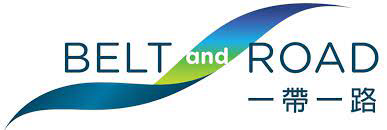By Staff writer.

Over the last two decades, China has established a significant economic presence in most African countries. Its lucrative economic investment package, flexible political approach, and focused big-ticket development projects under the Belt and Road Initiative (BRI) provide an ostensibly massive opportunity to African countries. China does not meddle in internal political affairs of African countries like the US and European countries do, and this has made China a natural ally of Africa countries.
With its involvement in the infrastructure sector beginning in the 1960s, China has established an active presence across the African continent. Trade between China and Africa has surged drastically from US$1 billion in 1980 to US$128 billion in 2016. Since 2000, it has provided cumulative loans of US$143 billion in Africa
While the financial crises in the US and the European Union have limited their investments in Africa, China is committed to investing more in the continent, especially boosting infrastructure development like roads, ports, and railways that are lacking to bridge the gap of trade within countries and across other African countries. China’ presence in Africa is a solution to Africa’s ambition of realizing a vibrant continental free trade area. The African Development Bank (ADB) has estimated that Africa’s infrastructure deficit amounts to US$ 93 billion annually until 2021.
The African Continental Free Trade Area (AfCFTA) is the largest free trade area in the world measured by the number of countries involved. It connects 1.3 billion people across 55 countries with a combined gross domestic product (GDP) valued at US$3.4 trillion. It has the potential to lift 30 million people out of extreme poverty, but achieving its full potential will depend on putting in place significant policy reforms and trade facilitation measures.
China is engaged in peace and security projects in Africa. It participates in five UN peacekeeping missions in Africa and is the second-largest financial contributor to UN peacekeeping missions, which includes contributing to the African Union Mission in Somalia (AMISOM) and the IGAD South Sudan mediation. Economically, China has a history of fast and successful economic growth, which presents an attractive template for African countries to replicate.
The African Union has also signed a Memorandum of Understanding (MoU) on BRI cooperation with China, as well as most African countries. An assessment of developments related to the BRI in Africa reveals that economic factors weigh significantly in China’s decision-making regarding investments overseas, rather than being driven by its geopolitical and geostrategic objectives as the west claims.
The Belt and Road Initiative and the Forum on China-Africa Cooperation (FOCAC) Since 2000, have been the main platforms for China-Africa relations. For the implementation of the FOCAC Action Plan (2016-2018) adopted in Johannesburg in December 2015, China pledged USD 60 billion in financial support with a focus on infrastructure development andindustrialization. The African Development Bank (ADB) projected that Africa’s food imports would reach $90 billion by 2030. With China’s partnership with Africa in industrialization, the volume of imports will be cut down significantly.
While Africa will certainly see more BRI projects in ‘traditional’ sectors such as ports, roads and railways, China’s shift towards sustainability has led to a growing emphasis on investments in other areas, such as renewable power schemes, digital infrastructure and the Health Silk Road. The number of African BRI participants interested in renewable energy projects has increased , with even more aiming to invest in the grid and network infrastructure needed for reliable power provision.
As African governments continue to develop badly-needed infrastructure and seek to boost their economies after the COVID-19 pandemic, there are likely to be even more opportunities in BRI, for both Africa and China.
For comments or opinion write to us oninfo@africachinareview.com
You can also follow us on twitter account @africachinarev
 Africa -China Review Africa -China Cooperation and Transformation
Africa -China Review Africa -China Cooperation and Transformation
